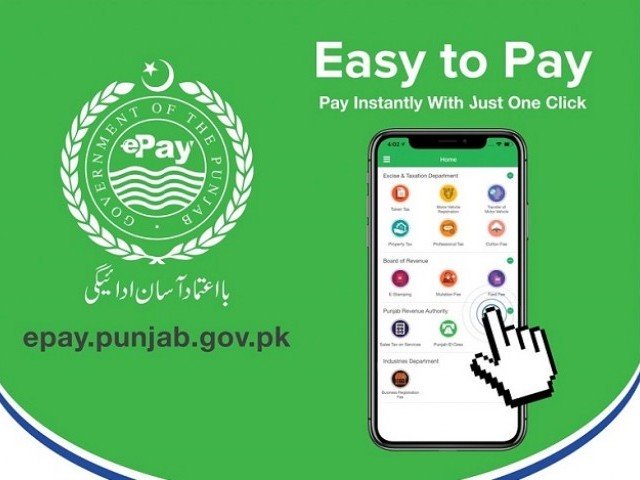Punjab government’s first-ever payment aggregator — a service provider that allows merchants to process mobile or e-commerce payments — called ePay and launched for citizen facilitation and ease of business, has collected over Rs1 billion in tax revenue, The Express Tribune reported.
ePay was launched on October 4 last year in a collaborative effort between the provincial finance department and Punjab Information Technology Board (PITB).
Read more: Realme unveils ‘Quad Camera BatteryKing 5i’, ‘Triple Camera Game Monster C3’
This application provides the public with a stress-free and efficient method of paying taxes and making payments to the government through contemporary banking channels, without going through the ages-old exhausting process.
Moreover, multiple new payment channels like debit/credit card, mobile wallets, TELCO agent networks and direct debit from the account are being added to further increase the payment options available to the citizens and businesses in the app.
Read more: Study reveals: Excessive smartphone usage affects brain like drugs
Additionally, it is also planned to include Government to Public (G2P) and Government to Business (G2B) payment models in future to broaden the horizon of the programme and also add tax/non-tax receipts like online admission fee for colleges/schools, driving license fee, e-challan, character certificate, domicile, fitness certificate (commercial vehicles) and agriculture income tax.
Read more: Pakistan, US trade negotiation failed
The initiative has proved to be a game-changer in the local fintech industry by playing a pivotal role in increasing tax revenue collection of the province and improving financial inclusion. In its first phase, 13 taxes/levies of five departments have been made part of the system.
Excise & Taxation, Board of Revenue (BoR), Punjab Revenue Authority (PRA), Industries and Transport are the departments liaised with the system through which citizens can pay token tax, motor vehicle registration, transfer of motor vehicle, property tax, professional tax, cotton fee, e-stamping, mutation fee, fard fee and sales tax among others.







